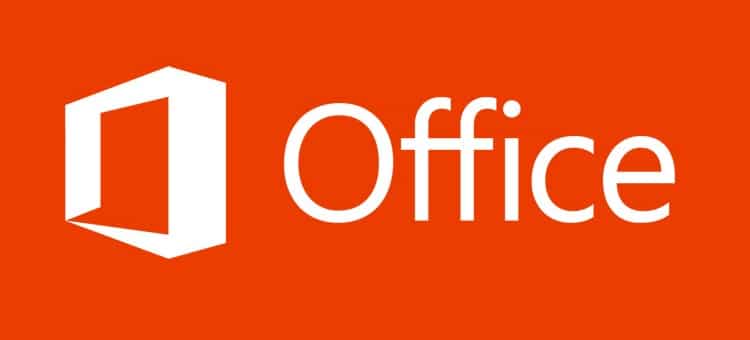With remote and hybrid work environments becoming the norm, now there is more emphasis on tools that let businesses communicate and collaborate effectively. Employees need tools that will let them deliver their objectives, regardless of where they are working from.
Microsoft 365 for Business is a productivity tool that comes packed with the power of Office apps like Word and Excel. Your employees can connect and share information with apps like Outlook, Exchange, and Microsoft Teams.
If you are new to Microsoft 365, outsource IT service desk companies can help configure and maintain these apps. They can also help with licenses, onboarding, and onboarding activities.
10 Reasons You Should Use Microsoft Office 365 for Business
Do you need help determining if Microsoft 365 for Business would be the right choice for your company? Here are some benefits that may help you decide.
1. Latest Version of Office Apps
As mentioned above, you should get the latest version of Office apps like Word, Excel, and PowerPoint with your business subscription plan.
These apps can be used for the simplest to most complex functions. For example, the Excel app can be used to collect and track simple data like the number of products, features, inventory, and so on.
The same app can be used to design complex sales reports where you can have an overview of sales and drill down to the set of products contributing the most.
Similarly, using PowerPoint, you can translate complex ideas into easy-to-understand graphical format.
2. Streamline Information Sharing
As a business, it is necessary that the same productivity tools are deployed across teams. You may have employees spread across the globe. If they use different apps for creating documents and slides, compatibility can be an issue.
Collaborating with different teams could be a challenge. Critical information can get lost in the process.
With Microsoft 365 for Business, you can streamline the information-sharing process on an organization-wide level. You can store data in file-sharing locations, password-protect portals, and documents and get everyone on the same page.
3. Seamless Connectivity
Microsoft offers tools like Outlook, Exchange, and Teams to connect with resources inside the company and also communicate with customers.
Exchange is an email solution. It is a dedicated network resource management platform. On the other hand, Outlook is also used to send and receive emails, but it is a client that is installed on your device.
Microsoft Teams provides a space for employees and people outside your company to connect in real time and collaborate. When you create a new group, it ties into other apps under the Microsoft umbrella, like SharePoint Online, to store team files.
The new release of Teams includes features like the direct upload of documents from OneDrive for Business, sending messages later, and launching quick polls.
4. Subscription-Based Model
You can pay for Microsoft 365 Basic to Premium plans monthly or annually. For example, with a monthly commitment payment, you can pay month and month and cancel at any time.
With the annual commitment payment, you sign-up for a yearly subscription. You can choose to pay annually or month by month.
Microsoft allows you to mix and match plans according to your requirement. You can also buy a business SKU and add on any Microsoft services your company needs.
5. Work From Anywhere
Microsoft 365 uses cloud computing and mobile apps to provide users with complete flexibility and work from any place at any time.
Depending on the subscription plan, you can access desktop, web, and mobile versions of Office apps. For example, the Microsoft 365 Business Basic plan offers web versions of apps like Word, Excel, PowerPoint, Teams, Outlook, Exchange, OneDrive, and SharePoint.
So as long as your employees have a stable internet connection and a compatible device, they can work on their deliverables.
6. Frequent Updates and Upgrades
Microsoft 365 apps are updated every month. These can include security and non-security updates. Security updates are released for product-specific system vulnerabilities. On Microsoft’s website, you can check for the update’s severity.
Non-security updates can include fixes for known issues, new features, stability, and performance improvements. For example, if you visit Microsoft’s support website and find an app like Teams, you will see update specifics with a monthly view.
7. File Sharing Capabilities
Tools like OneDrive and SharePoint offer a secure way of storing and sharing files.
With OneDrive, you can access your files regardless of your device. So even if employees are away from their desks or are working from different locations, they will have access to the files necessary for their job.
With SharePoint, teams working on the same project can create and share documents. These portals will be password-protected. Team members can view files, make changes, and add updates with version control measures.
8. Easy to Understand and Use
You do not have to be technically adept to start using Microsoft 365. The apps and services have a short learning curve.
You can have documents and videos in your knowledge base on how to use Microsoft 365 or direct employees to Microsoft’s support websites.
If employees run into issues, they can reach out to the service desk, which can help with account setups.
9. Reliable Service
Microsoft 365 for Business aims to improve connectivity, productivity, and efficiency. According to Statista, it has a market share of 48.08% in the office suite technologies space.
The company can retain such a stronghold over the market as it offers reliable service. All Microsoft 365 services have an uptime of 99.9%. This is a financially backed service guarantee by the company.
10. 24/7 Phone and Web Support
If you run into an issue with your Microsoft 365 for Business, plenty of support is available online.
On Microsoft’s help and learning portal, you can access several self-help articles and posts for common issues and questions.
The subscription plans also come with 24/7 phone and web support. So, if the self-help portals or the help desk team cannot resolve an issue, you can always reach out to Microsoft.
Summary
Microsoft 365 for Business helps employees connect, share, and collaborate efficiently and securely.
The subscription model offers the flexibility of using tools according to your business needs. In addition, your employees can work from anywhere with the web and mobile versions of Office apps.
It is an easy-to-use and reliable solution, with help being only a phone call away.







